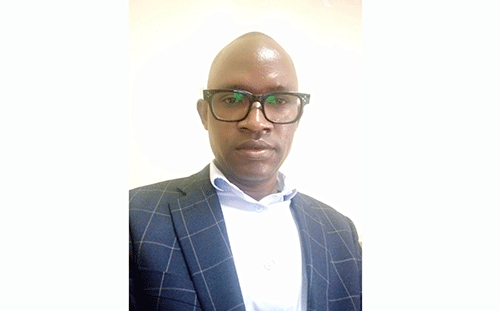The odds were always stacked against Johanna Kamati, one of the few San people from Onamatadiva village in the Ohangwena region who made it through school without dropping out or at least reaching tertiary education level.
Raised by her mother with four other siblings in the Onamatadiva San settlement in extremely impoverished circumstances, Kamati took the insults and bullying from fellow learners on the chin and excelled in school.
The marginalised San communities face a myriad of problems: low levels of education, limited opportunities and food insecurity.
Kamati (19), is a first-year student at the International University of Management (IUM)’s Nkurenkuru campus in the Kavango West Region, pursuing studies in education.
New Era visited her in Okongo, where she is now living under the care of one of her guardians.
Although she experienced bullying at school to the extent that she considered dropping out, she said that didn’t stand in her way of finding success.
“Apart from living in a makeshift hut made of plastic and sticks or being part of what they termed ‘Aakwankala’, I didn’t look different from them. So, that didn’t really get into my way of studying hard,” she stated confidently.
At school, she would be called “Omukwankala and dirty girl”, and be discriminated against by other learners.
“It made me feel bad, obviously. I would cry at times, but my mom always encouraged me to keep my head up and focus on what brought me to school,” she noted.
Kamati was one of the few San learners at Oshela Secondary School.
She is the only one among her peers at that time who reached grade 12.
“Others have dropped out, maybe because they could not keep up. Some fell pregnant and couldn’t continue anymore,” she explained.
Most families within that particular community cannot also afford the cost of education for their children, causing many learners to drop out of school.
“Although the government would cater for most of our needs, such as school funds, getting to school was a challenge because we had to walk long distances. There was also no food at home, and we would sleep during lessons. The situation back home was not pleasant,” she narrated.
Kamati is the first-born of five siblings. She has not met her father since childhood.
“We all depended on my mother, who at the time didn’t have any source of income. In fact, other children in my settlement also didn’t have a proper upbringing. Parents spend the whole day at the cuca shops, and there is no one to really encourage them to study because they don’t understand the importance of education. Some parents stop their children from going to school, saying they will apparently be taken away from them by the government,” she stated, adding that she and a few others are succeeding “by default”.
Despite the struggles she endured throughout her school life, she is overwhelmed by the support she got from government through the educational support programme for marginalised communities and also her guardian, Talia Juuso, who has been taking care of her since she was in Grade 10.
Asked what motivated her to study hard, Kamati said “I hated living in that condition. Imagine living in a tiny shelter with no bed, blanket and food. I wanted and still want a better life for my mom and siblings.”
After her studies, she would like to become a teacher.
“My goal is to one day get a job and go and educate my community,”
She also wants to expand her skills to earn an income, and break the cycle of poverty in her family.
“People back home are still living in extreme poverty, and I want to change that,” she said.
Kamati’s mother Liina Johannes expressed gratitude to the government for assisting her daughter.
Both Johannes’ children are currently enrolled in schools.
“Despite our living conditions, I want my children to become successful. I always tell them to look where they are coming from, and to focus on where they are going,” she said.
Tomas Puleinge, a regional development planner of the marginalised communities in the Ohangwena region, told New Era that they have a low record of San students enrolled at tertiary institutions.
Currently, there are 265 students from across the country enrolled in institutions of higher learning, of whom six are from Ohangwena.
Through their partnership with Palms for Life Namibia, they have also enrolled 35 pupils from Ohangwena into a Community Skills Development Centre (COSDEC).
“When these learners reach the tertiary level, we pay for their accommodation, ensure their studies are funded, give them an allowance of N$1 500, and closely monitor them to make sure there are no other distractions and that they are as comfortable as possible,” he observed.
Puleinge added that they have observed that most learners in schools are faced with many challenges which prompt them to drop out of schools, such as bullying and child labour.
“Various reports state that it is through bullying that these children leave school prematurely, which consequently contributes to less enrolments of these learners at tertiary institutions,” he noted.
To further promote education within the San community, Puleinge said they have likewise enrolled 15 learners -who didn’t get good points in grade 11 and couldn’t repeat because of their mature age – into private schools to improve their subjects.
– ashikololo@nepc.com.na


